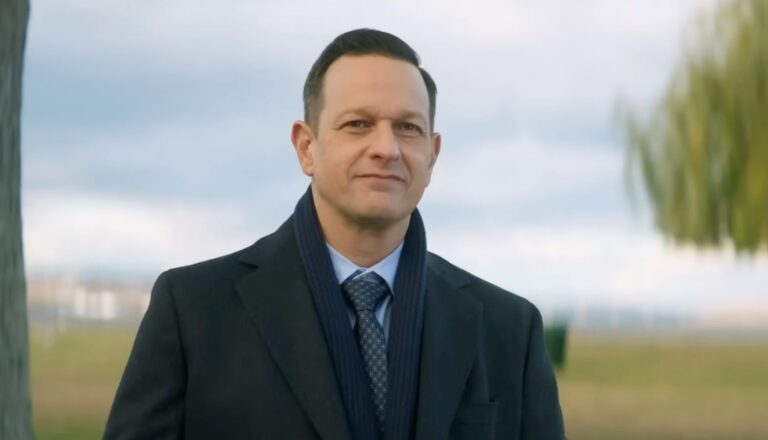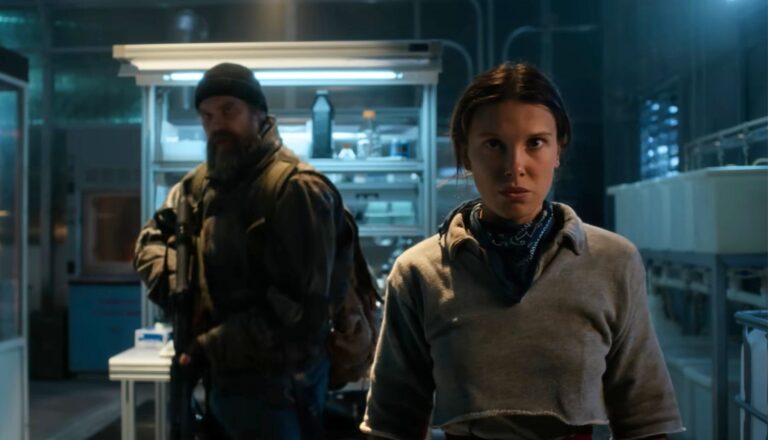
Best Medicine
In Fox’s Best Medicine, uptight city surgeon Dr. Martin Best moves to small-town Port Wenn and learns to get along with its quirky residents.

It doesn’t take forensics research or DNA evidence to figure out what people are watching on network TV these days. Week in and week out, crime procedurals such as CSI, NCIS, The Mentalist and Criminal Minds dominate the ratings. In the face of such stiff competition, new entries in the genre need something more than just compelling storylines, beautiful actors and grisly crimes to compete. They need a hook (or a gimmick, depending on your point of view) that sets them apart.
Past Life’s hook/gimmick? Reincarnation.
In many ways, Fox’s crime procedural follows the established formula to the letter: a brainy beauty and a struggling, square-jawed ex-cop pair up to solve decades-old crimes. But—wait for it—Dr. Kate McGinn, a doctor at New York City’s Talmadge Center for Behavioral Health, specializes in helping people process traumatic events from their past … as in past lives. When someone begins to re-live horrific events that led to a past version of themselves racing toward an untimely death, Kate’s right there to help.
“The idea of reincarnation is that we’ve all been here before, and we’ve got memories of our past” she tells a troubled adolescent in the show’s pilot. “Normally, those memories stay in our deep subconscious, and there’s not a problem. But sometimes, when our souls are in conflict, those memories come up to the surface and can be very traumatic. We call that a regression. That’s when a person goes back and experiences events in his past life.”
Kate’s solution: confronting those memories head-on by trying to piece together exactly what led to the tragic deaths of those who’ve now been reincarnated—and are suffering tormenting flashbacks in the present. That’s where Kate’s partner, Price Whatley, comes in. A former homicide detective and confirmed skeptic (not to mention being an alcoholic widower), Whatley brings a investigative specialist’s eye to the dreamlike bits of information that surface each time one of Kate’s clients suffers through a nightmare-like regression.
As a teen realizes he was drowned as a little girl, for example, Kate and Whatley puzzle out the wheres and the whys … and eventually nail the perpetrator 15 years after the crime was committed. Cold case closed. Bad guy booked. Regressive torments solved. Cue music for happily ever after … and after, according to the show.
The result is a drama that feels like one part CSI, one part X-Files and one part Minority Report. Oh, and Fringe, The Ghost Whisperer and Medium, too.
(Editor’s Note: Plugged In is rarely able to watch every episode of a given series for review. As such, there’s always a chance that you might see a problem that we didn’t. If you notice content that you feel should be included in our review, send us an email at letters@pluggedin.com, or contact us via Facebook or Instagram, and be sure to let us know the episode number, title and season so that we can check it out.)
Corrine is trying to cope with her past life by abusing sedatives. And we see her grab barbiturates. (Kate suggests that Whatley’s attraction to alcohol is no different than Corrine’s drug abuse.) Someone falls from a cliff, and we see a bloodied woman lying facedown in a bed with most of her bare back exposed. We learn that her murder occurred after a one-night sexual encounter. A 17-year-old, who wears a cleavage-baring top, jokes that she’s been “drinking and having unsafe sex.” Kate and Corrine wear towels in a sauna.
Thinking she might have been a murderer in her past life, Corinne assumes that her present torment is her punishment. Kate counters, “The idea of karma is that we have the ability to reset the natural balance. That’s what we’re going to do.” The episode concludes with Brett Dennen’s song “Heaven”: “Whatever faith you practice/Whatever you believe/Heaven/Heaven/What the h‑‑‑ is heaven?”
Other profanities: three or four misuses of God’s name and one to three uses each of “a‑‑,” “d‑‑n,” “h‑‑” and “p‑‑‑ed.” A teenager calls someone a “douche bag.”
Positive themes include Corrine’s determination to take care of her younger sister after they were orphaned by their single father’s death.
Noah witnesses unsettling images of his past life as a young girl who was murdered. Among other frightening images, we see her assailant tossing her into the ocean to drown.
The episode plays around a bit with gender confusion as Noah instinctively goes into a women’s restroom and later cuts his hair, saying he doesn’t want to be a girl anymore.
Whatley, though initially skeptical of reincarnation, is shown to be superstitious. Regarding his movement toward “faith” in reincarnation, Kate quotes a bumper sticker she saw: “The greater the doubt, the greater the awakening.” In an obtuse throwaway line, Kate’s mother says she won’t marry the guy she’s dating because, “As far as I’m concerned, husbands are like Jesus: just another white man telling me what to do.”
Empty alcohol containers are strewn about Whatley’s apartment. And he drinks at a bar. We hear a handful each of “d‑‑n” and abuses of God’s name. There are one or two uses each of “h‑‑‑,” “a‑‑” and “b‑‑tard.” “Friggin'” stands in for the f-word.

After serving as an associate editor at NavPress’ Discipleship Journal and consulting editor for Current Thoughts and Trends, Adam now oversees the editing and publishing of Plugged In’s reviews as the site’s director. He and his wife, Jennifer, have three children. In their free time, the Holzes enjoy playing games, a variety of musical instruments, swimming and … watching movies.

In Fox’s Best Medicine, uptight city surgeon Dr. Martin Best moves to small-town Port Wenn and learns to get along with its quirky residents.

This beloved Hallmark romantic drama about life in a small, 1900s Canadian mining town returns for its tenth season.

Since violence and crudities reign supreme in ‘Run Away,’ viewers might do well to heed the advice in the show’s title.

The newest season of Netflix’s Stranger Things continues to blend ’80s nostalgia with ever-darker spiritual content and horrific violence.